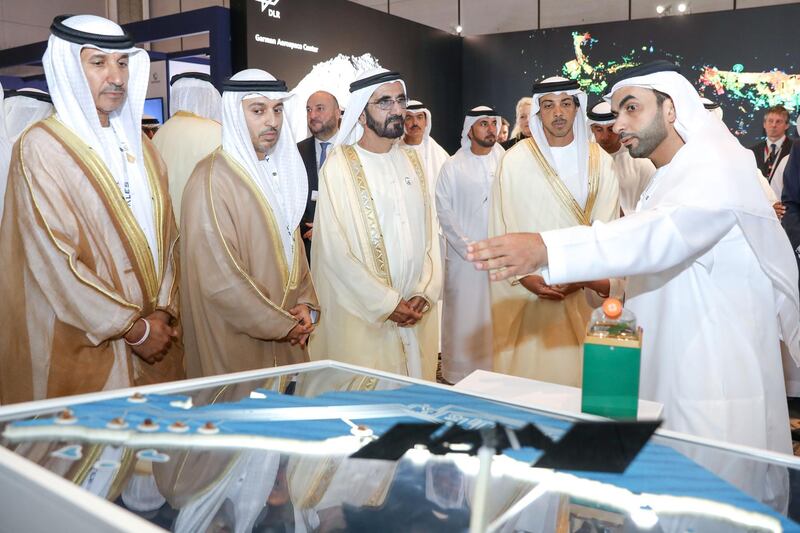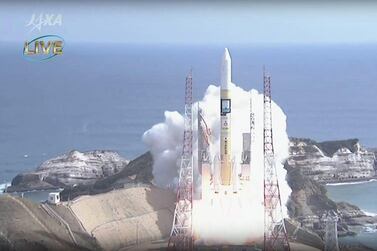A new satellite to be built by the Arab Space Co-ordination Group will monitor pollution, dust levels and greenhouse gases across the region, it has been revealed.
The UAE Space Agency on Wednesday said it will take three years to develop and will have a lifespan of about five. A launch date was not revealed.
Engineers from the Group, which includes the UAE, Jordan, Bahrain, Algeria, Saudi Arabia, Sudan, Lebanon, Oman, Kuwait, Morocco and Egypt, will build the satellite, which has been called 813, at the National Space Science and Technology Centre in Al Ain.
Once in orbit, data will be sent to a ground station in the UAE and other Arab countries to help monitor vegetation, soil types and water levels.
The name — 813 — refers to the year that the "house of wisdom" in Baghdad began to flourish. This was a centre for scholarly research, which attracted scientists, doctors and translators and contributed to what is known as Islam's Golden Age. The was a period of cultural, economic and scientific advancement from the 8th century on.
Sheikh Mohammed bin Rashid, Vice President and Ruler of Dubai, announced the creation of the Arab space organisation on Tuesday.
"The house brought together scientists … and became a place for the region to unleash its scientific energy," Sheikh Mohammed said at the Global Space Congress in Abu Dhabi.
The news was also welcomed by global space experts. "We are really excited to see the collaboration between the Gulf states in a new space confederation," said the former head of Nasa, Charles Bolden.
"It is really important that they are going to work together."
The UAE is leading the new group and it has expertise in launching satellites. KhalifaSat, the first one designed and made by Emirati engineers, blasted off into space from Japan last year.








